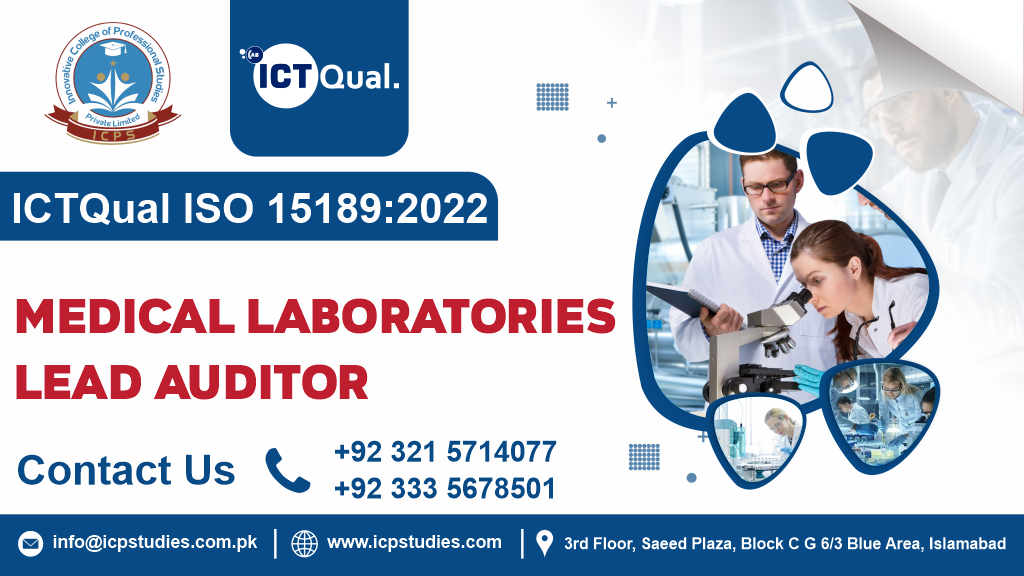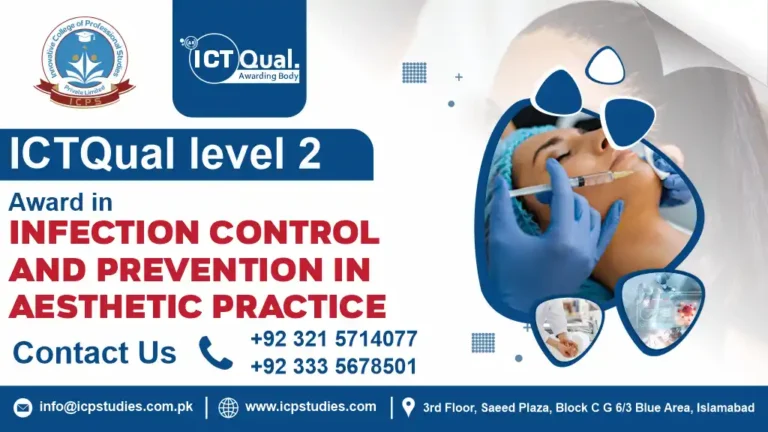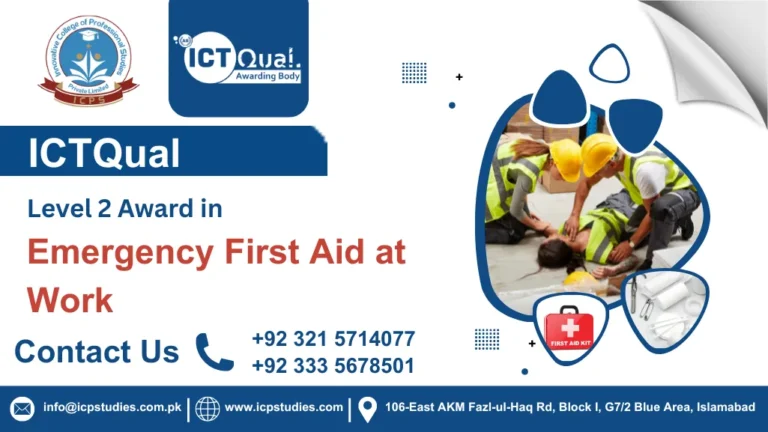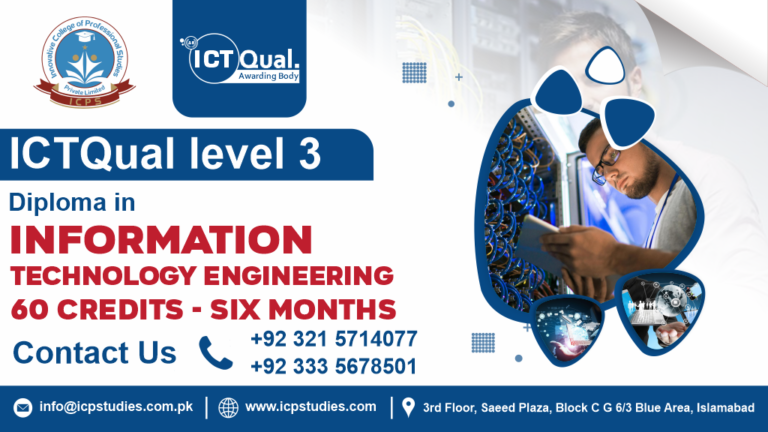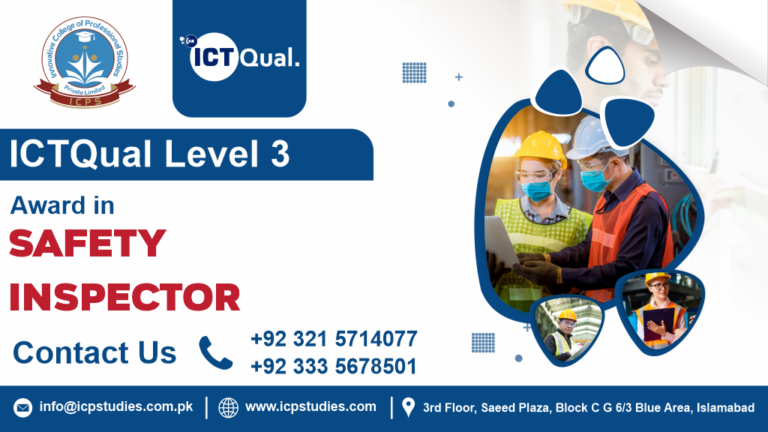In the realm of medical diagnostics and laboratory services, precision, accuracy, and reliability are paramount. ISO 15189:2022 provides a robust framework for quality management systems in medical laboratories, ensuring that laboratories meet the highest standards of quality and competence. For professionals aiming to lead and enhance laboratory quality management, the ISO 15189:2022 Lead Auditor Course offers an invaluable opportunity.
The ISO 15189:2022 Lead Auditor Course is designed to equip professionals with the skills necessary to conduct comprehensive audits of medical laboratories against the ISO 15189:2022 standard. This updated standard outlines the requirements for quality and competence specific to medical laboratories, focusing on both technical and management aspects. As a Lead Auditor, you’ll play a crucial role in assessing and ensuring that laboratories adhere to these stringent standards, ultimately contributing to the delivery of high-quality medical testing and results.
ISO 15189:2022 Medical Laboratories Lead Auditor Course is a strategic move for professionals dedicated to advancing laboratory quality and compliance. By mastering the skills and knowledge required to lead effective audits, you’ll play a pivotal role in ensuring that medical laboratories deliver accurate, reliable, and high-quality diagnostic services.
All About ICTQual ISO 15189:2022 Medical Laboratories Lead Auditor
Course Overview
ISO 15189:2022 is an international standard specifically tailored for medical laboratories. It outlines the requirements for quality and competence in medical testing, ensuring that laboratories provide accurate, reliable, and timely results. The ISO 15189:2022 Lead Auditor is a professional who has been trained and certified to conduct audits of medical laboratories against this standard.
ISO 15189:2022 Lead Auditor plays a critical role in ensuring that medical laboratories operate at the highest standards of quality and competence. Through rigorous auditing processes, Lead Auditors help laboratories maintain accreditation, improve performance, and ultimately contribute to better patient care and safety.
Study Units
- Introduction to ISO 15189:2022 Standard
- Quality Management Systems in Medical Laboratories
- Technical Requirements for Laboratory Operations
- Auditing Principles and Practices
- Conducting ISO 15189:2022 Audits
- Corrective Actions and Continuous Improvement
To enroll in the ICTQual ISO 15189:2022 Medical Laboratories Lead Auditor course, participants typically need to meet the following requirements:
- Age Requirement: Participants should be at least 18 years old.
- Basic Literacy: A good understanding of English is essential, as course materials and instruction are primarily in English.
- Professional Background: Familiarity with medical laboratory practices or relevant experience in laboratory management is beneficial.
- Prior Knowledge: Participants should have a basic understanding of ISO 15189:2022 standards and general auditing principles.
- Course Registration: Participants must register for the course through an authorized training provider.
- Payment: Course fees must be paid as required by the training provider.
- Commitment to Attend: Participants should be prepared to attend the full duration of the course to receive certification.
The ICTQual ISO 15189:2022 Medical Laboratories Lead Auditor course is designed for:
- Lead Auditors: Individuals responsible for conducting audits of medical laboratories and ensuring compliance with international standards.
- Laboratory Managers: Professionals overseeing laboratory operations who need to understand quality management principles specific to medical laboratories.
- Quality Assurance Personnel: Individuals involved in maintaining and improving quality systems within medical laboratories.
- Laboratory Technologists and Scientists: Professionals seeking to enhance their understanding of quality management and auditing in laboratory settings.
- Compliance Officers: Those ensuring that medical laboratories meet regulatory and accreditation requirements.
- Consultants: Professionals advising medical laboratories on quality management and compliance issues.
- Anyone Seeking ISO 15189 Certification: Individuals looking to advance their careers in laboratory management and quality assurance.
This course equips participants with the skills and knowledge to effectively audit and assess medical laboratories according to ISO 15189:2022 standards, promoting high-quality laboratory services and patient safety.
Learning Outcome
1. Introduction to ISO 15189:2022 Standard
Learning Outcomes:
- Understand the Scope and Purpose: Gain a comprehensive understanding of the ISO 15189:2022 standard’s scope, objectives, and significance for medical laboratories.
- Identify Key Requirements: Recognize the core requirements and principles outlined in ISO 15189:2022 and their implications for laboratory quality and competence.
- Contextualize the Standard: Explain the relevance of ISO 15189:2022 within the broader context of quality management in medical laboratories and its alignment with other ISO standards.
2. Quality Management Systems in Medical Laboratories
Learning Outcomes:
- Implement Quality Management Systems: Understand how to establish and maintain a quality management system tailored to the needs of medical laboratories.
- Assess Quality Processes: Evaluate the effectiveness of quality processes and procedures in ensuring accurate and reliable laboratory results.
- Integrate Management Practices: Identify and apply best practices for managing laboratory operations, including documentation, internal audits, and staff training.
3. Technical Requirements for Laboratory Operations
Learning Outcomes:
- Apply Technical Standards: Demonstrate knowledge of the technical requirements specific to laboratory operations, including equipment calibration, test methods, and result validation.
- Evaluate Laboratory Performance: Assess the technical performance of laboratory processes to ensure they meet the ISO 15189:2022 requirements for accuracy and reliability.
- Ensure Competence: Verify that laboratory personnel possess the necessary qualifications and competencies to perform their roles effectively.
4. Auditing Principles and Practices
Learning Outcomes:
- Understand Auditing Principles: Learn the fundamental principles and methodologies of auditing, including the purpose and types of audits.
- Apply Auditing Techniques: Develop the skills to apply auditing techniques effectively, including planning, conducting, and documenting audits.
- Evaluate Compliance: Assess how to evaluate compliance with ISO 15189:2022 and other relevant standards through systematic audit processes.
5. Conducting ISO 15189:2022 Audits
Learning Outcomes:
- Plan and Prepare for Audits: Learn how to develop and execute an audit plan tailored to ISO 15189:2022, including defining scope, objectives, and criteria.
- Execute Audits: Gain practical experience in conducting audits, including gathering evidence, interviewing staff, and reviewing documentation.
- Document Findings: Understand how to document audit findings accurately and prepare comprehensive audit reports.
6. Corrective Actions and Continuous Improvement
Learning Outcomes:
- Identify Non-Conformities: Develop skills to identify and address non-conformities discovered during audits, and recommend appropriate corrective actions.
- Implement Corrective Actions: Understand the process for implementing corrective actions and monitoring their effectiveness to resolve issues and prevent recurrence.
- Promote Continuous Improvement: Learn strategies for fostering a culture of continuous improvement within the laboratory, ensuring ongoing compliance and enhancement of quality management practices.
These learning outcomes are designed to ensure that participants in the ISO 15189:2022 Medical Laboratories Lead Auditor Course acquire the expertise needed to effectively audit and enhance medical laboratory operations, aligning them with international standards and best practices.
FAQs about ICTQual ISO 15189:2022 Medical Laboratories Lead Auditor

